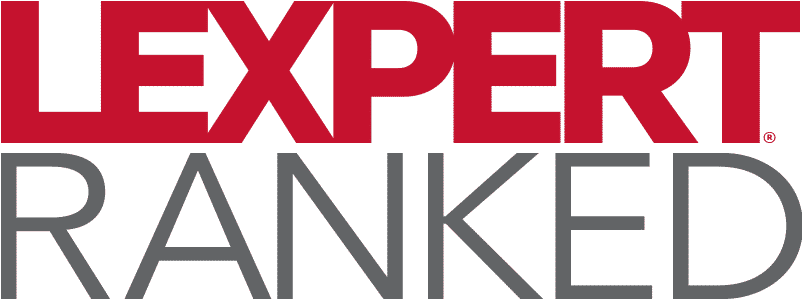
 Occupational Health & Safety lawyers’ practice area is generally agreed to include advising with respect to occupational health and safety law compliance, conducting OHS workplace audits, drafting policies and procedures, providing training to supervisors and managers, representing clients in disputes relating to work refusals, counsel on the appeal of health and safety inspectors orders and directions, advising employers after critical injuries and fatalities, defending corporations, directors, officers and supervisors charged with occupational health and safety charges, counsel at coroners inquests and advising on related workers' compensation matters.
Occupational Health & Safety lawyers’ practice area is generally agreed to include advising with respect to occupational health and safety law compliance, conducting OHS workplace audits, drafting policies and procedures, providing training to supervisors and managers, representing clients in disputes relating to work refusals, counsel on the appeal of health and safety inspectors orders and directions, advising employers after critical injuries and fatalities, defending corporations, directors, officers and supervisors charged with occupational health and safety charges, counsel at coroners inquests and advising on related workers' compensation matters.
Please note that the Lexpert Directory has separate sections for:
Certain employment or workplaces are inherently unsafe, mainly due to the nature of the work that an employee has been assigned to, or certain hazards exist in the workplace which makes it dangerous even if they are not inherently unsafe. As such, the occupational health and safety (OHS) standards set by laws and regulations are there to provide for preventive and reactive ways in addressing OHS concerns.
Occupational health and safety (OHS) standards, enacted through legislations or administrative regulations, generally aim to keep employees safe in the performance of their jobs, and to provide for ways which employers can do to improve workplace safety, minimise workplace hazards, and how to respond to workplace accidents.
OHS also addresses concerns regarding illnesses, such as its prevention and treatment, that employees may contract in their work. Currently, mental and social health is also being integrated into the area of OHS, especially when mental stress and psychological problems arise from these workplaces. Thus, application of OHS is not only restricted in hard-labour jobs, such as in construction or in a factory setting, but also in corporate and commercial offices.
Working around OHS standards and its implementation, an occupational health and safety lawyer does not only assist in litigations regarding accidents, injuries, or even death in the workplace, but also in the preventive aspect of it. OHS lawyers may also assist settling these claims extrajudicially.
Generally, OHS laws and regulations in Canada applies to all workplaces, whether public or private entities, and regardless of the size of workforce, with some specific applications to generally hazardous industrial sectors.
Occupational health and safety laws in Canada can be divided into federal or provincial/territorial jurisdictions. For federally regulated industries or sectors, OHS is governed by the Canada Labour Code, and the Canada Occupational Health and Safety Regulations. As an employer, the specific laws which will govern the workplace must be referred to an occupational health and safety lawyer, since these have specific applications unique to a sector or industry.
The Canada Labour Code, specifically in Part II on Occupational Health and Safety, provides for the duties of employers with regards to ensuring OHS in the workplace, and rights of employees with respect to their health and safety.
Generally, it is the duty of employers to ensure that the health and safety of all employees it has employed are protected. It is heavily influenced by prescribed safety standards, set by the industry or sector it belongs to, and in ensuring that employees are properly informed of these prescribed safety standards. This duty of employers is divided into specific duties stated in Section 125 (1) of the Code.
Duties of the employees, on the other hand, is laid out in Section 126 (1). The Code expects employees to comply or follow all regulations imposed by the employer, along with other regulations, and to report to the employer any workplace hazard, injuries, and accidents that occur in the workplace. They may also report any other contravention under the Code committed by other employees or even by the employer itself.
Both duties of employers and employees, and the rights afforded to both, can be best explained by an occupational and health safety lawyer in order to prevent an accident from occurring in the workplace, and to comply with the federal regulations under the Code.
Section 123 (1) of the Code provides for the federally regulated industries or sectors where Part II applies. Some of these are:
banks
maritime transportation
air transportation
land transportation
communications
federal Crown corporations
In Section 148, the Code provides for civil liabilities for offenses and punishments when employers fail to comply with these regulations and accidents occur resulting to injuries or death of an employee. This is in addition to criminal charges that may filed under the Canada Criminal Code. In these situations, litigations may ensue, and an occupational health and safety lawyer may represent either party. Here, it is the plaintiff-employee who has the burden of proving that such accident happened due to the gross negligence of the employer. On the side of the defendant-employer, it must show that it has exercised due care and diligence as a defense to extinguish its liability.
The Canada Occupational Health and Safety Regulations are the regulations applying Sections 125, 125.1, 125.2, and 126 of the Canada Labour Code. Thus, the Regulations provide for the specific standards of these Sections, such as measurements of safety installations, structural standards, procedural standards in handling hazardous materials, among others.
Whenever applicable, these standards must be consulted with an occupational health and safety lawyer for compliance depending on the employer’s line of business.
The Canada Labour Code essentially provides for three categories of rights under OHS, which are also found in several provincial and territorial OHS legislations. Generally, these rights are granted to employees; and when these rights are violated, employees may proceed to an occupational health and safety lawyer for assistance in enforcing these rights.
Employees have the right to know, or the right to information, on all known or foreseeable hazards and dangers related in their job and in the workplace. In addition, employees must also be provided with instructions, including proper training, and supervision in protecting one’s health and safety in the workplace.
Employees are also afforded the right to participate in all decision-making processes, such as crafting of management policies, especially when these would directly affect said employees. This would include the right to participate in addressing work-related health and safety issues. In some cases, an occupational health and safety lawyer may be called in for these negotiations.
Employees can refuse work when there is a reasonable cause to believe that the performance of a specific task, or that the operation of a machine or apparatus, would endanger himself/herself or others. However, this right has certain exceptions, such as when the refusal to work would itself endanger others, or when the danger is a normal condition of employment.
OHS issues are mainly addressed by Health Canada, which works together with the labour portfolio of the Employment and Social Development Canada. In addition, the Labour Program in the federal level acts as the regulating authority for workplaces designated to be under federal jurisdiction.
Head down below to see the list of the best Lexpert Ranked occupational health and safety lawyers in Canada for your inquiries or needs, whether as an employee or an employer.


























